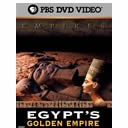The Hittites
Narrated with the characteristically soothing lilt of Oscar-winning actor Jeremy Irons, The Hittites is a sprawling and ambitious portrait of a hugely influential empire unknown by many. Exhaustive in scope and excitingly cinematic in its execution, the film breathes vital life into ancient history.
The journey begins over 3,500 years ago in the war-torn regions around what is now known as Turkey. From the blood-drenched struggles for territorial dominance rose the Hittites, a military power renowned for their effectiveness in defeating even the most ardent opponents. They continued to rule over the next 500 years until their eventual fall in 1200 BCE.
For many throughout the world, exposure to the Hittite legacy was limited to their inclusion in sections of the Old Testament. That all changed with one of the most remarkable discoveries in archaeological history. In the early 1900's, excavators uncovered thousands of clay tablets on which contained a series of communications written in the oldest recorded Indo-European language. Researchers quickly decoded this language, and deciphered a detailed military history of the Hittites.
The pearls of wisdom they gleaned from these tablets work to inform the content of the film. The filmmakers provide insights into the Hittite culture, its people, their string of successful battles, and the personalities of its hierarchy. We learn their strategies of combat; the mercy they granted to those who surrendered to their power, and their savage response to those who didn't. We gain knowledge of their rituals and customs, and recognize how certain tenants of their legal system still echo in modern society. The film also spends a generous amount of time in examining how the empire ascended and faltered under the guidance of various military leaders. Collectively, these revelations deepen our appreciation of the period and - in some cases - its connections to the world we live in today.
The Hittites contains polished production values, interviews with noted scholars of the period, and impressive re-enactments of key events, including the infamous Battle of Kadesh led by Pharaoh of Ramesses II and King Muwatalli II. Whether you're an expert in this period of history or a newcomer, the film provides a dense and satisfying understanding of its subject.
Directed by: Tolga Örnek




The missing part of the history. We know Romans, Byzantines, Egyptians, World War 1 & Two. Nice to have anything that I learned in between. The hiccups that were never available to us.
An amazing number of documents (on tablets) about these people. It's surprising they kept so much, but lucky for us they did. Well-developed history and sources about the Hittites.
History, it seems, is really only known to those who lived it. Historians develop theories which are not truths. Historical records can be works of fiction or partially so. It may be that the Hittites historians were the most honest ever. Hard to say. How about their interpreters of today?
Which brings up the point of one of those interpreters who stated the Hittites revered nature, blah, blah, blah. Yet the people of the lands they conquered were part of nature. The Hittites decimated and burned. It would seem that at least some of nature was burned in the process as well as polluted greatly by the death and destruction. So is there any truth to that interpretation "of reverence to nature" or just the agenda of the speaker? Hard to know since I wasn't there. Could it be same as today where people write and promote a reverence for nature while others make a mess of it? It does seem difficult to do as much damage in those days. And since it was more difficult to transport food, it was more important to keep much of the land in good shape.
What happened to the Hittites? More theories. It could have been another plague or an uncovering of the prior one. Why stick around for that all over again. Did they study the water supply system? Maybe an earth shift or something caused water to stop. Such things can and do happen and would cause a quick exodus.
I have nothing against the Bible. There is much good historical record and psychology in it. However, I would like to know who taught Moses to write? Did he not have a teacher in his youth? And who taught that teacher? And that teacher, etc.? It would seem that writing on clay tablets and possibly a tightly woven cloth would have occurred before papyrus or paper was invented. If I recall, the Bible itself recounts the writing on tablets the 10 commandments, which seems to predate the Bible. Further, the Bible is a compilation of writings. What of the writings that were not included, did any of those predate the writings that were included in the Bible? And of the lost books of the Bible? Did the Biblical and not included writers, write any correspondence to relatives or in business prior to that which they felt compelled to write about which was included (and not included) in the Bible? It would seem so. And who taught them to write?
What good would "scientific proof" do? Carbon dating has proven to be unreliable. A person has to have faith in science in order for it to be believed. Many do so at their folly. The unearthing of things that supersede the prior accepted "scientific knowledge" occurs periodically if not regularly. It would seem our wee noggins were intended to be used for more than being short sighted. Even the Bible cautions against dogmatic thinking.
Moses was raised by the daughter of Pharoah, so would have been educated and taught to write by the best Egyptian scholars, one would assume.
Also, the writing of the 10 Commandments in stone is to show they are unchangeable commandments of God. You can always edit writings on clay or paper, not so much once carved in stone.
@Bilbz - Unless you have information not provided anywhere in the scientific world, perhaps you can enlighten us as to how you claim those tablets preceded the Bible? Accordingly, the Hittites were between the 17th - 12th centuries BC, whereas Moses (who wrote the first 5 books of the Bible) was around the 16th - 15th century BC. You cannot assume anything; but it seems you have a certain agenda against the Bible? You do know that the Hittites were considered non-existent except for their reference in the Bible, UNTIL the tablets were discovered? You then throw in Egypt into the mix? Did Egypt make mention of the Hittites? No. So, your point in throwing in Egypt as some sort of your validating point? Leave the real science and history to the professionals, because you fail at it miserably.
@Attai - Clay tablets... over million of them, all of them preceded the bible. That's also just one example. Then there's that place... what was the name of it? Oh... yea Egypt... you might have heard of it.
All is fine, except that blue. werent that colour dye till bout 1500 AD.
Just a minor note: the video said the Hittites King's son was killed by the Egyptian Queen's rivals. We do not technically know this, the King got a letter from a General who took the crown saying the King's son did not make it to Egypt but that the General claims he did not kill him.
The General was campaigning in the region where the son died so most people assume he killed him but yeah thought I'd throw that info out there!
I recall this being shown on cable several years ago. It is an excellent program and helps us to understand the Hitties in a comprehensive yet clear manner. Recommended!
The earlier negative comments almost persuaded me not to watch this video. I'm glad I didn't allow that to happen. I actually liked the music and narration, but mostly am immensely grateful for this wonderful panorama that is also in-depth and personal. I am only informally and eclectically self-educated. As such I am curious about the human experience, and would love to see more productions like this. As a believer in Jesus Christ I want to see how his words and times are framed by the cultures and empires before, during and after his time on earth.
I could really do without Jeremy Iron's hammy narration and, as eduard says, the overbearing music.
Otherwise, good documentary - plenty of info well presented.
2 minutes into this....and I quit watching, Esau is the Devil, he sours and lies about everything and all cultures.....Edomite Caucasian Images he is profiling......Please, the Hittites are Hamitic, meaning African and NO writings precedes the Bible..Stop with the Garbage prove it or shut the Hell up....you Devils
Who says no writings precede the Bible? The Bible?
Absolutely excellent, an enlightening work, highly informative and long over due. I must though agree with "eduard" on his music comment, but that said overall a great presentation.
Regretfully the background music is overbearing and makes the dialogue difficult to follow.